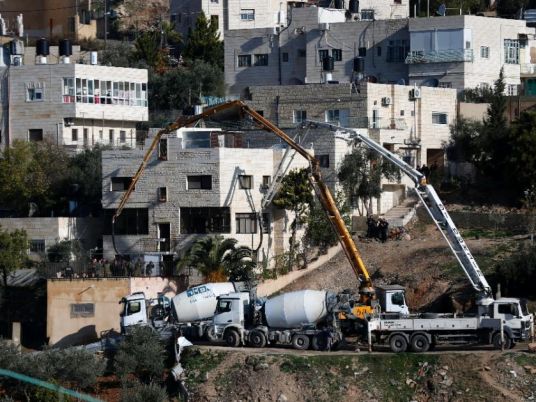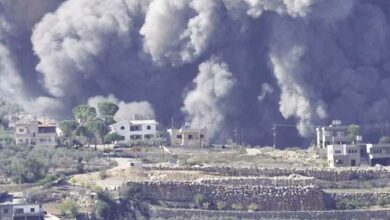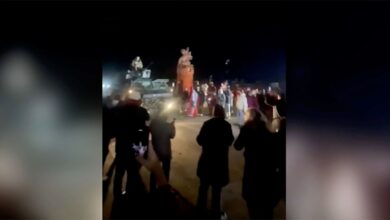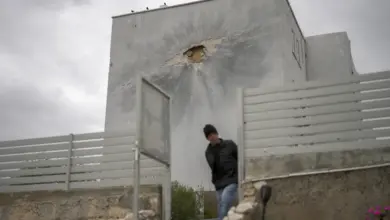
Israeli forces on Monday destroyed the east Jerusalem homes of two Palestinians who killed four Israelis in one of the deadliest days in the recent surge in violence.
In the neighborhood of Jabel Mukaber, the home of Palestinian Alaa Abu Jamal was filled with concrete and sealed off, an AFP reporter at the scene said.
Abu Jamal had on October 13 rammed his car into people at a Jerusalem bus stop and jumped out with a knife, stabbing a rabbi to death before being shot dead.
Abu Jamal was also a cousin of two Palestinians who in November stormed a synagogue in Jerusalem's Har Nof neighborhood with meat cleavers and a pistol, killing five Jewish worshippers and a policeman before being shot dead.
In another part of Jabel Mukaber, Israeli forces used jackhammers to destroy the walls of Bahaa Allyan's home, the middle floor of a three-story building.
Allyan and another Palestinian, Bilal Ghanem, had on October 13 shot and stabbed passengers on a bus in Jerusalem, killing two Israelis and a US-Israeli dual national.
Allyan was shot dead while Ghanem was arrested.
Hundreds of Israeli police and soldiers were on site for the home destructions, which took place without incident after residents were cleared from the area.
"I don't have any other place to live," Allyan's father Mohammed told AFP.
"The army just said 'we are going to destroy the house, get out' — this measure punishes a father, a mother, a brother, a sister and (four) children" who were living in the house, he said.
In a wave of Palestinian attacks since October 1 — including stabbings, car rammings and gunfire targeting security forces and civilians — 22 Israelis, an American and an Eritrean have been killed.
At the same time, according to an AFP count, 138 Palestinians have been killed by Israeli forces, most while carrying out attacks.
Israeli Prime Minister Benjamin Netanyahu in November vowed to expedite punitive house demolitions in the West Bank and east Jerusalem, which he said were "one of the most efficient tools" in discouraging Palestinian attacks.
The controversial practice is widely used in the West Bank and resumed in east Jerusalem in November after a five-year hiatus.
According to the United Nations, 19 homes of families and neighbors of Palestinian attackers were destroyed by Israel last year.




